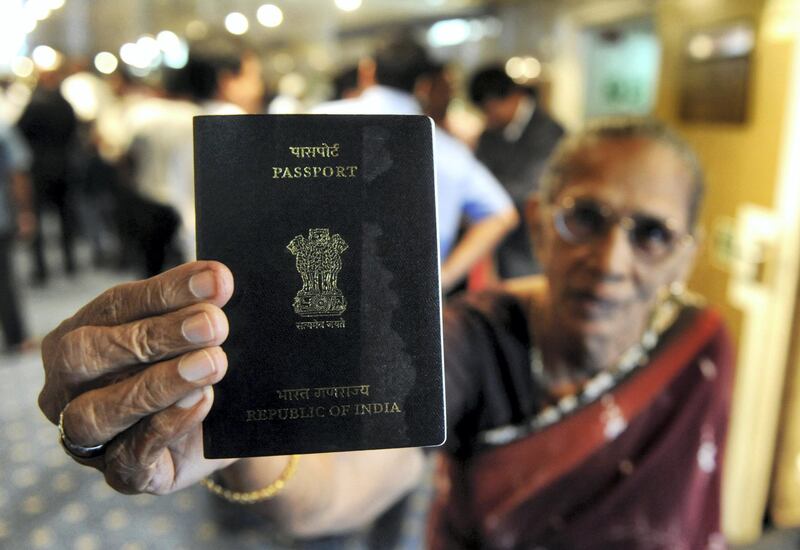The Indian government’s proposal to issue orange-coloured passport covers for migrants would have created deep divisions in society, said residents who stood together against the plan and have welcomed New Delhi back-pedalling on the issue.
The plan raised a storm of protest in India and overseas with people decrying the scheme as discriminatory and prejudiced.
“A different colour would have made people feel small. It would have divided people and singled out those who were not educated,” said Salem Badnatti, an airport maintenance worker who studied in the UAE for three years while working to complete school.
“The orange colour on their passport would have made them feel different and it would have caused a lot of problems in people’s minds.”
Mr Badnatti had studied up to year seven when he moved to Dubai more than six years ago. Like other unskilled and semi-skilled workers who have not completed year 10, he required an emigration clearance stamp on the last page of his passport to leave India for employment.
The Indian government announced two weeks ago that an orange jacket would replace the emigration clearance check on the last page of passports.
Officials said it would help immigration staff easily identify and protect workers travelling for employment overseas from agents who exhort money while promising jobs.
The separate colour passport booklets decision would have impacted migrant workers in 17 countries including the UAE and other nations in the Gulf region.
However, the government abandoned the plan on Thursday.
A statement from the Ministry of External Affairs said the earlier decision had been taken to help and assist workers on a priority basis.
After comprehensive discussions, the ministry decided it would instead continue with the current practice of printing the last page of a passport with family details and emigration information.
The ministry received "several representations" requesting it to reconsider the decision, the statement said.
UAE resident KV Shamsudheen was among those who petitioned the government urging them to revoke the plan that many criticised as unfair.
_______________
Read more:
India ditches plan for orange passports
India's orange passport cover plan makes workers feel 'second-grade citizens'
Special report: The inspiring story of four migrants looking to create a better life in Dubai
_______________
“Everyone spoke out against it and there was a lot of pressure from all over the GCC for the government to reverse their decision,” said Mr Shamsudheen, chairman of a welfare trust who had asked people to email his petition posted on Facebook to government ministers.
“Thousands of people forwarded messages to the government asking them to reconsider. Our constitution does not allow segregation of people into educated and uneducated. Everyone should have the same rights. Even though this would have mainly affected uneducated people, everyone knew it was not correct and was against it.”
The government will now instead continue to print the last page of an Indian passport with details of parents or spouse names, residential address and maintain a space that states if an emigration check is required.
The emigration check stamp is not required by those who complete school and pay income tax.






